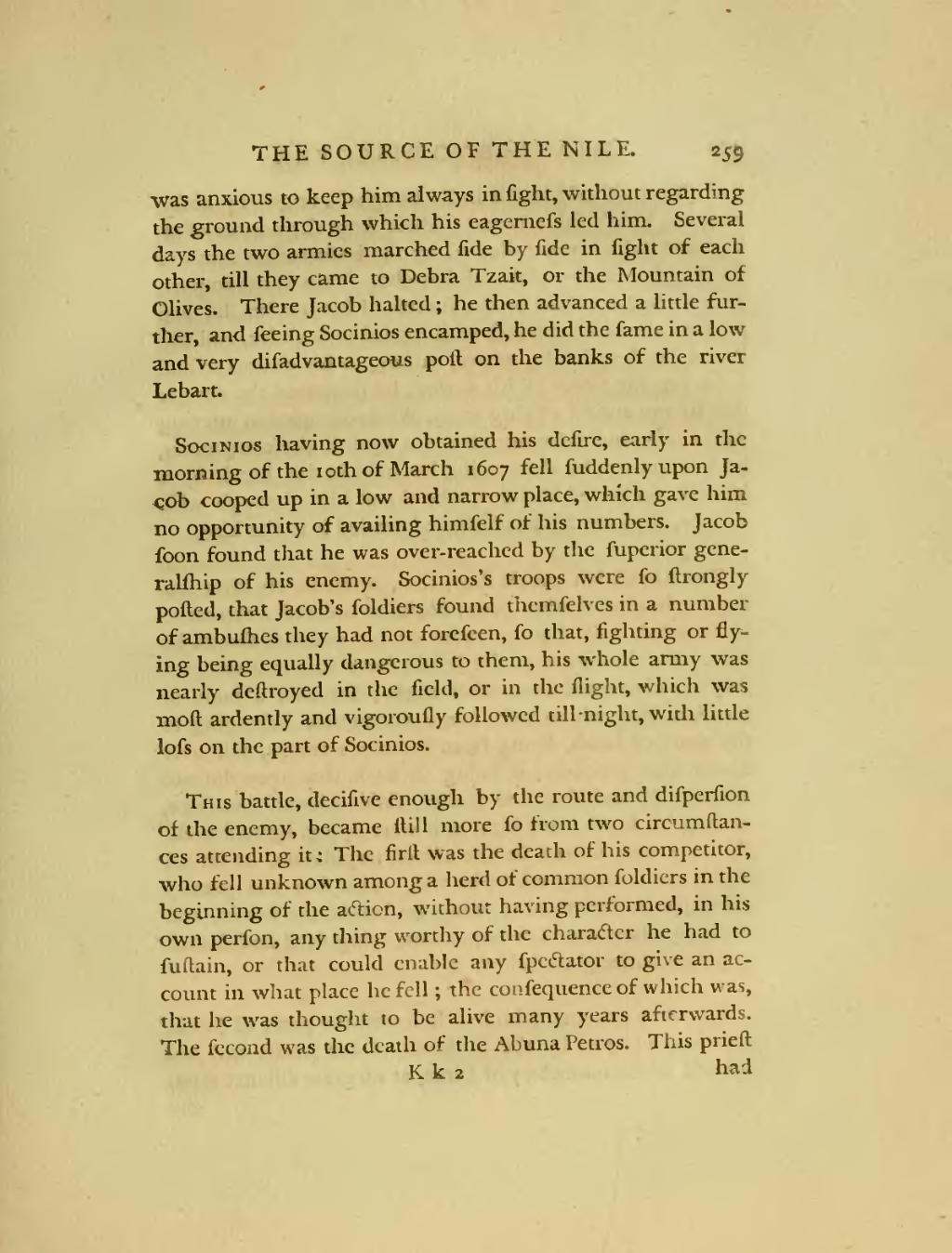was anxious to keep him always in sight, without regarding the ground through which his eagerness led him. Several days the two armies marched side by side in sight of each other, till they came to Debra Tzait, or the Mountain of Olives. There Jacob halted; he then advanced a little further, and seeing Socinios encamped, he did the same in a low and very disadvantageous post on the banks of the river Lebart.
Socinios having now obtained his desire, early in the morning of the 10th of March 1607 fell suddenly upon Jacob cooped up in a low and narrow place, which gave him no opportunity of availing himself of his numbers. Jacob soon found that he was over-reached by the superior generalship of his enemy. Socinios's troops were so strongly posted, that Jacob's soldiers found themselves in a number of ambushes they had not foreseen, so that, fighting or flying being equally dangerous to them, his whole army was nearly destroyed in the field, or in the flight, which was most ardently and vigorously followed till night, with little loss on the part of Socinios.
This battle, decisive enough by the route and dispersion of the enemy, became still more so from two circumstances attending it: The first was the death of his competitor, who fell unknown among a herd of common soldiers in the beginning of the action, without having performed, in his own person, any thing worthy of the character he had to sustain, or that could enable any spectator to give an account in what place he fell; the consequence of which was, that he was thought to be alive many years afterwards. The second was the death of the Abuna Petros. This priest
